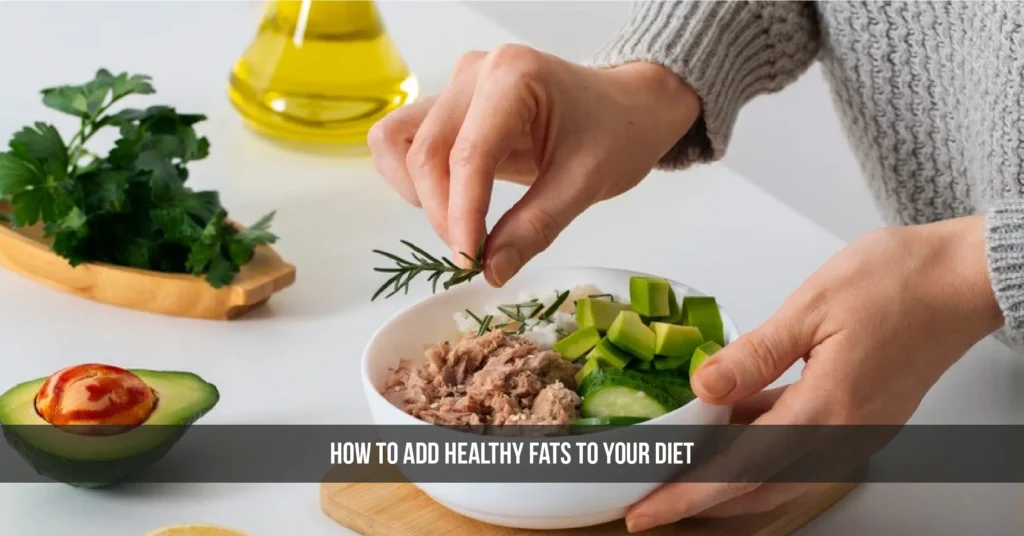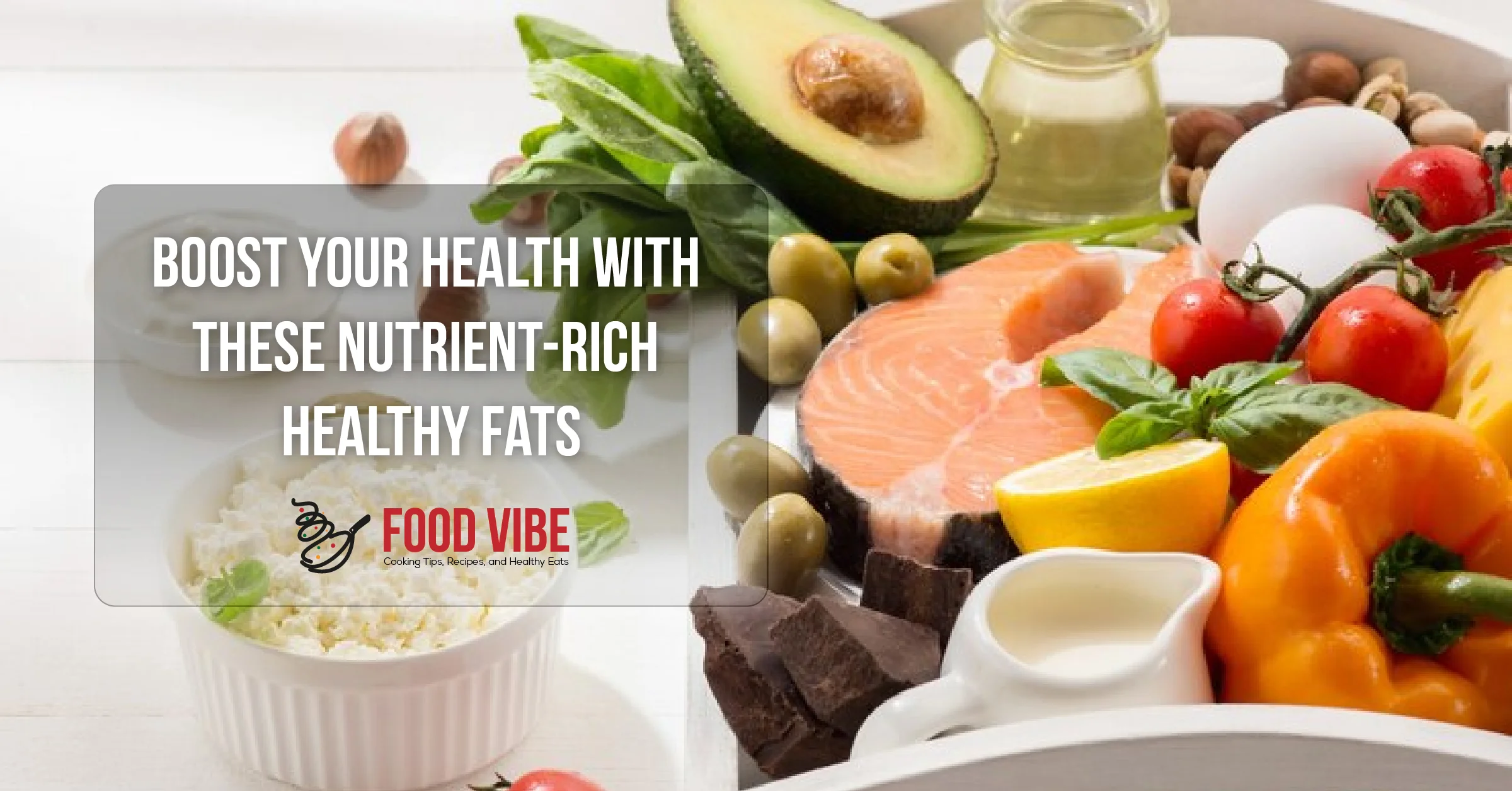Boost Your Health: Add Healthy Fats to Your Diet Today
Adding healthy fats to your diet can greatly improve your health. They help with heart health and managing weight. Foods like avocados and nuts are full of good fats. Learning about these fats and where to find them is the first step.
Healthy fats can make a big difference in your health. They help with weight and heart health. Start by finding foods like nuts, seeds, and olive oil. Then, learn how to include them in your meals. This is key to a balanced diet and good health.
Table of Contents
Understanding the Role of Healthy Fats in Your Body
Exploring nutrition shows how vital healthy fats are for your health. They help your heart, brain, and manage weight. Knowing the types of fats and their effects is key.
To add healthy fats, eat whole foods like nuts, seeds, avocados, and fatty fish. These are full of essential fatty acids. These acids are crucial for healthy cells and nerves, and they help make hormones and control inflammation.
The Different Types of Dietary Fats
Dietary fats are mainly three types: saturated, monounsaturated, and polyunsaturated. Saturated fats are in animal products, while monounsaturated and polyunsaturated are in plants. Knowing this helps you choose better foods.
Why Your Body Needs Healthy Fats
Healthy fats keep your skin, hair, and nails healthy. They also help your body absorb vitamins and minerals. Plus, they help control cholesterol and make hormones like insulin and leptin.
Distinguishing Between Good and Bad Fats
Not all fats are good for you. Healthy fats in avocados and nuts are beneficial, but unhealthy fats in processed foods harm your health. Eating whole foods and avoiding bad fats is best for your health.
| Type of Fat | Food Sources | Health Benefits |
|---|---|---|
| Saturated Fat | Meat, dairy, coconut oil | Supports hormone production, maintains healthy skin and hair |
| Monounsaturated Fat | Avocados, nuts, olive oil | Supports heart health, reduces inflammation |
| Polyunsaturated Fat | Fatty fish, flaxseeds, chia seeds | Supports brain function, reduces inflammation |

The Science Behind Essential Fatty Acids
When you dive into the world of healthy fats, you’ll hear about essential fatty acids. These are fats your body can’t make itself, so you must eat them. They’re key for heart health and brain function. Foods like salmon and sardines are packed with these essential fats.
But it’s not just salmon and sardines that are good for you. Other foods rich in essential fatty acids include:
- Mackerel
- Anchovies
- Walnuts
- Chia seeds
These foods offer many benefits, like reducing inflammation and supporting heart health. Adding omega-3-rich foods to your diet helps keep your body balanced. This balance is vital for your health.
Learning about essential fatty acids helps you make better food choices. By picking the right foods and keeping a balance, you support your health. Essential fatty acids are crucial for heart health and brain function.
| Food Source | Omega-3 Content |
|---|---|
| Salmon | 1.8-2.2 grams per 3-ounce serving |
| Sardines | 1.3-1.5 grams per 3-ounce serving |
| Walnuts | 2.5 grams per ounce |
Top Sources of Heart-Healthy Omega-3 Fats
There are many ways to add omega-3-rich foods to your diet. These fats help lower inflammation and boost heart health. You can find them in fish and seafood, as well as in plant-based foods.
If you eat seafood, salmon and mackerel are top choices for omega-3s. For plant-based diets, flaxseeds and chia seeds are great. Also, avocado and olive oil are full of healthy fats. It’s important to eat these foods in the right amounts.
Fish and Seafood Options
- Salmon
- Mackerel
- Sardines
Plant-Based Omega-3 Sources
- Flaxseeds
- Chia seeds
- Walnuts
Adding these omega-3 foods to your diet can make you healthier. Just remember to pick high-quality sources and eat them in balance.
How to Add Healthy Fats to Your Diet
Adding healthy fats to your meals is easy and tasty. Try adding nuts and seeds to your oatmeal or yogurt. Avocado oil is also a great choice for cooking. Snacking on fruits and nuts, like apples and almonds, is another good option.
To add healthy fats to your diet, here are some tips:
- Use olive oil for salad dressings and sautéing
- Add avocado to your sandwiches and salads
- Snack on nuts and seeds, such as walnuts and chia seeds
- Incorporate fatty fish, such as salmon, into your meals
By following these tips, you can easily incorporate healthy fats into your diet. This will help you enjoy balanced and nutritious meals. Always choose high-quality sources and eat them in moderation.
| Food | Healthy Fat Content |
|---|---|
| Almonds | 14g per ounce |
| Avocado | 10g per medium fruit |
| Salmon | 12g per 3-ounce serving |

Cooking with Healthy Oils: Best Practices
Choosing the right oil for cooking is key. Different cooking methods need different oils. This affects the taste and nutrition of your dish.
Olive oil is great for low-heat cooking like sautéing. Avocado oil is better for high-heat tasks, such as frying.
Proper storage is crucial for healthy oils. Store them in a cool, dark place. Always check the expiration date before use.
Here are some tips to keep your oils fresh:
- Store oils in airtight containers to prevent oxidation and spoilage.
- Keep oils away from direct sunlight and heat sources.
- Use oils within a few months of opening to ensure freshness and quality.
Cooking with healthy fats like avocado and olive oil adds flavor and nutrition. Follow these tips and choose the right oil for your method. This way, you can make delicious, healthy meals that are good for you. Always check the temperature guidelines for safe and effective use.
Plant-Based Healthy Fat Sources
Exploring healthy fats, you’ll find many plant-based healthy fats to boost your diet. These fats from plants can greatly improve your health and well-being. Nuts, seeds, and avocados are top choices for adding healthy fats to your meals.
Adding nuts and seeds to salads or using avocado on whole-grain toast are great ideas. You can also make a trail mix with nuts and seeds or blend avocado into sauces. These steps can make your meals more flavorful, textured, and nutritious.
- Nuts: almonds, walnuts, pecans
- Seeds: chia, flax, hemp
- Avocados: use as a topping, blend into sauces, or add to salads
To enjoy plant-based healthy fats, eat them in moderation as part of a balanced diet. Simple changes in your eating habits can help you incorporate healthy fats into your daily meals. This way, you can see the benefits for yourself.
Balancing Your Fat Intake with Other Nutrients
To keep your diet healthy, it’s key to balance fat with protein and carbs. This balance helps with digestion, weight control, and overall health. Learning about healthy fats and how to add them to your meals can help you reach your health goals.
Here are some tips for balancing fat intake:
- Create well-balanced meals by combining healthy fats with protein and complex carbohydrates.
- Practice portion control to avoid overconsumption of fat, which can lead to weight gain and other health issues.
- Time your fat consumption to optimize digestion and energy levels, such as eating healthy fats with meals or as a snack.
Healthy fats offer many benefits, like better heart health, more energy, and improved brain function. Foods like avocados, nuts, and olive oil are great sources. By choosing healthy fats and balancing them with other nutrients, you can enjoy a healthy diet.
Creating Well-Balanced Meals
A balanced meal should have healthy fats, protein, and complex carbs. For example, a salad with grilled chicken, avocado, and whole-grain crackers is a good mix. Eating whole, unprocessed foods and watching portion sizes helps support your health.
Portion Control Guidelines
Controlling portions is crucial for a healthy diet. To balance fat intake, focus on serving sizes and limit fat at each meal. Aim for 20-35% of your daily calories to come from fat.
Common Mistakes to Avoid When Adding Healthy Fats
Adding healthy fats to your diet can be tricky. One big mistake is eating too much, which can lead to too many calories. This is especially bad if you’re eating a lot of unhealthy fats. These can raise your risk of serious health problems.
It’s also important to think about the quality of the fats you eat. Essential fatty acids are good for you, but not all fats are the same. For example, foods like avocado, nuts, and olive oil are full of healthy fats. But, foods like processed snacks and fried foods have unhealthy fats.
Overconsumption Pitfalls
- Exceeding daily calorie needs
- Consuming high amounts of saturated and trans fats
- Neglecting to balance fat intake with other nutrients
Quality vs. Quantity Considerations
To make good choices, eat a variety of whole, unprocessed foods. This includes foods rich in essential fatty acids. By watching your portion sizes and choosing high-quality fats, you can enjoy the benefits of healthy fats. This way, you avoid the risks.
| Food Source | Healthy Fat Content |
|---|---|
| Avocado | Monounsaturated fats |
| Nuts and seeds | Polyunsaturated fats |
| Olive oil | Monounsaturated fats |
Smart Shopping Guide for Healthy Fat Sources
Choosing the right healthy fats is key to a balanced diet. Nuts, seeds, and avocados are great sources. They offer many health benefits when eaten in the right amounts. Always read labels and steer clear of unhealthy fats.
Here are some smart shopping tips:
- Opt for unsalted and unsweetened options to reduce added sugars and sodium
- Choose products with minimal ingredients and no artificial preservatives
- Select a variety of healthy fats sources to ensure you’re getting a range of nutrients
Adding healthy fats to your diet can be tasty and simple. Try avocado on toast or in salads. Or, snack on nuts and seeds. Use healthy oils like olive or coconut oil for cooking and dressing salads. Simple changes in shopping habits can boost your health and well-being.
| Healthy Fat Source | Nutritional Benefits |
|---|---|
| Nuts and seeds | Rich in healthy fats, protein, and fiber |
| Avocados | High in healthy fats, vitamins, and minerals |
| Fatty fish | Rich in omega-3 fatty acids and protein |
By following these tips, you can make a diet rich in healthy fats. This supports your health and well-being.
Conclusion: Making Healthy Fats a Sustainable Part of Your Diet
Incorporating healthy fats into your diet is key for your well-being. These nutrient-rich fats help your heart and brain. By adding healthy fats to your meals, you get a balanced diet.
It’s important to choose quality over quantity with healthy fats. Include sources like fatty fish, nuts, seeds, and avocados in your diet. This way, you can enjoy their benefits and improve your health.
Start embracing healthy fats in your meals. Your body will thank you for the nourishment. You’ll also see the benefits of a balanced, nutrient-dense diet in the long run.
Also Read: Best Foods to Naturally Lower and Control Blood Sugar
FAQs
What are the benefits of adding healthy fats to my diet?
Healthy fats improve heart health, support brain function, aid in weight management, and help absorb essential vitamins and minerals, contributing to overall well-being.
Which foods are the best sources of healthy fats?
Top sources include avocados, nuts, seeds, olive oil, fatty fish like salmon, and plant-based options like chia seeds and flaxseeds.
How can I incorporate healthy fats into my daily meals?
Add nuts and seeds to yogurt or oatmeal, use avocado oil for cooking, snack on fruits with nuts, or include fatty fish in your meals for a balanced diet.
What is the difference between good and bad fats?
Good fats, like monounsaturated and polyunsaturated fats, support heart and brain health, while bad fats, such as trans fats in processed foods, can harm your health.
How do I balance healthy fats with other nutrients in my diet?
Combine healthy fats with lean proteins and complex carbohydrates in meals, practice portion control, and avoid overconsumption to maintain a balanced and nutritious diet.














Post Comment